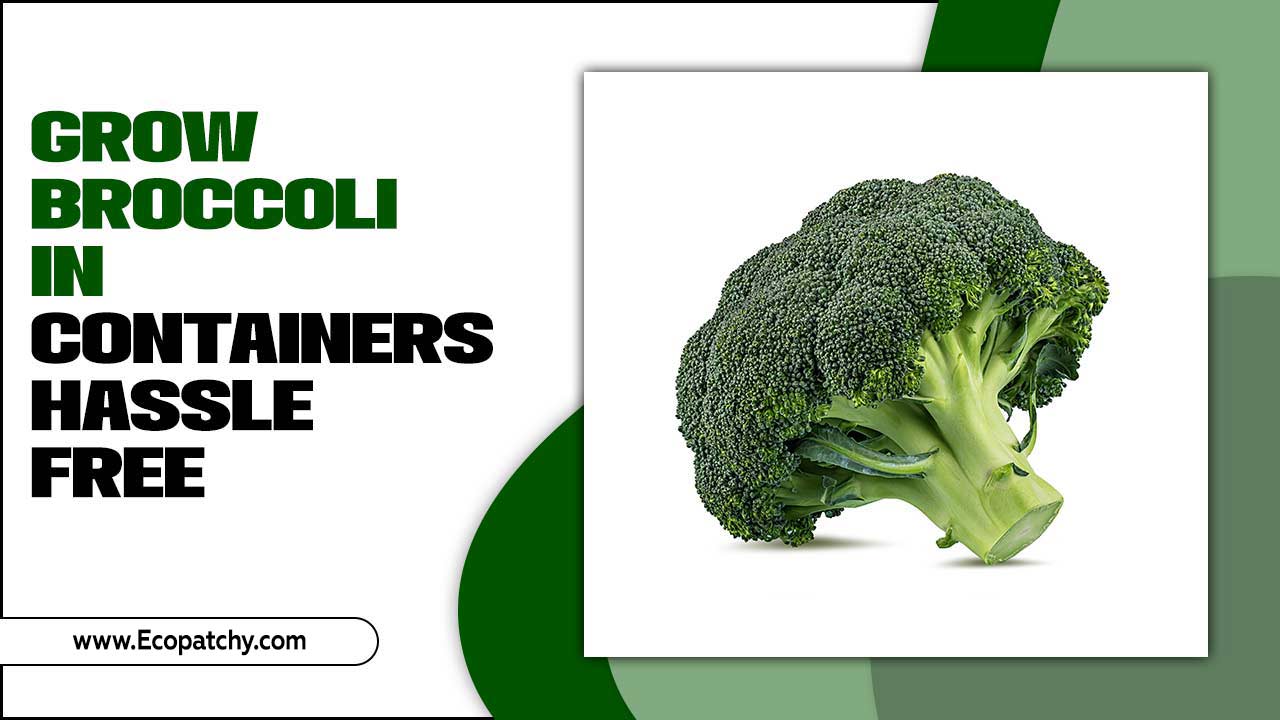Have you ever wondered how to make your garden grow better? Many people search for natural ways to boost their plants. One interesting option is wood ash. You might have seen ash left after a cozy fire. But can it help your garden?
Wood ash contains nutrients that plants love. It is rich in potassium, calcium, and magnesium. These are essential for strong growth. Some gardeners believe using wood ash is like giving plants a healthy snack. But is it good for all types of gardens? That’s what we will explore!
Imagine pouring leftover ash from a campfire onto your soil. It sounds easy, right? But before you do, it’s important to know how to use it properly. Too much ash can harm plants instead of helping them. Finding the right balance might just be the secret to a thriving garden.
Let’s take a closer look at whether wood ash is good for gardens. You may be surprised by the benefits and how to use it safely!
Is Wood Ash Good For Gardens? Benefits And Uses Explained

Is Wood Ash Good for Gardens?
Wood ash can be a surprising friend for your garden. It contains valuable nutrients like potassium and calcium, which help plants grow strong. Adding wood ash can improve soil pH, making it less acidic. This is great for vegetables and flowers. However, using too much can harm your plants by making the soil too alkaline. It’s best to test your soil before adding. Remember, moderation is key!Benefits of Using Wood Ash in Gardens
Enhances soil pH and reduces acidity. Provides potassium and other micronutrients to plants.
Using wood ash in your garden can have great benefits. It helps improve soil pH, making the ground less acidic. This change helps fruits and vegetables grow better. Also, wood ash is rich in potassium and micronutrients. These are essential for plants to thrive.
- Balances soil acidity
- Provides potassium
- Supplies essential micronutrients
Is wood ash good for plants?
Yes, wood ash is good for plants! It adds nutrients and helps the soil stay healthy. Your garden can grow more robust and fruitful with wood ash. Try it out and see the results!
How to Properly Apply Wood Ash
Guidelines on the amount to use based on garden size and soil type. Best practices for application timing and technique.
Applying wood ash in your garden can be beneficial if done correctly. Start with the right amount based on your garden’s size and soil type. For small gardens, use about one cup per 10 square feet. For larger areas, use one pound for every 100 square feet. Timing is key too. The best times to apply are in spring or fall. Spread it evenly over the soil and mix it in lightly. Avoid applying before heavy rain, as it can wash away.
How much wood ash should I use?
For best results, spread wood ash according to your garden size:
- Small garden: One cup per 10 square feet.
- Medium garden: Two cups per 20 square feet.
- Large garden: One pound per 100 square feet.
When is the best time to apply wood ash?
Apply wood ash during spring or fall. This timing helps the soil and plants benefit from it the most.
Choosing the Right Wood Ash
Differentiating between different types of wood ash (hardwood vs. softwood). Understanding the implications of treated vs. untreated wood ash.
Not all wood ash is the same. It’s important to know the type you have. Hardwood ash comes from trees like oak and maple. It has more nutrients. Softwood ash is from pine and spruce, and it has fewer nutrients. Also, be careful with treated wood. Treated wood ash may contain harmful chemicals, while untreated wood ash is safer for gardens. Always choose wisely for your garden’s health!
What is the best type of wood ash for gardens?
The best type for gardens is untreated hardwood ash. It adds nutrients and helps plants grow strong. Softwood ash is okay but has less benefit.
Potential Risks and Considerations
Identifying plants that may be sensitive to wood ash. Addressing concerns regarding heavy metals and pollutants in wood ash.
Some plants may not like wood ash. For example, blueberries and potatoes can be sensitive to it. Too much ash can change the soil’s acidity, which these plants dislike. Keep an eye on your garden when using it.
Another concern is about heavy metals in wood ash. These metals can be harmful. Always know the source of the wood before adding ash to your garden. It’s best to use ash from untreated wood, free of chemicals.
Are there sensitive plants to wood ash?
Yes, plants like blueberries and potatoes don’t enjoy wood ash.
Are there dangers of heavy metals in wood ash?
Yes, wood ash can contain heavy metals. Ensure the wood is untreated to avoid pollutants.
Comparing Wood Ash to Other Soil Amendments
Evaluating wood ash alongside lime and compost. Analyzing costeffectiveness and sustainability.
Wood ash is like a secret sauce for your garden, but let’s see how it stacks up against lime and compost. Lime is great for raising soil pH, while compost adds nutrients. Now, wood ash? It brings potassium and calcium and can be free if you burn your own wood. Compare this in the table below:
| Soil Amendment | Nutrients Provided | Cost-Effectiveness | Sustainability |
|---|---|---|---|
| Wood Ash | Potassium, Calcium | Free if burned at home | High |
| Lime | Calcium, Magnesium | Moderate | Moderate |
| Compost | Nitrogen, Phosphorus, Potassium | Low if bought | High |
In terms of cost and sustainability, wood ash wins big. But remember, balance is key! Think of it as assembling your gardening Avengers. Together, they’re unstoppable!
Success Stories: Wood Ash in Gardening
Case studies and testimonials from gardeners who use wood ash. Highlighting specific crops that thrive with the use of wood ash.
Many gardeners have shared their success stories with wood ash. They found it helped their plants grow strong. Some specific crops have done especially well:
- Tomatoes – They love the nutrients in wood ash.
- Peppers – These plants thrive when ash is mixed in the soil.
- Carrots – Wood ash can keep pests away.
One gardener said, “My garden has never looked better since I started using wood ash.” These stories show how helpful wood ash can be. Many agree, it’s a fantastic addition to any garden!
Do gardeners recommend wood ash?
Yes, many gardeners do recommend wood ash. They see great results with their plants. It improves soil health and supports growth.
Conclusion
In summary, wood ash can be great for gardens. It adds nutrients and raises soil pH. Just remember to use it sparingly and know your soil type. You can test your soil to see if wood ash is right for you. Try it out and watch your plants thrive! For more tips, check out gardening websites or books.FAQs
What Are The Nutrient Benefits Of Using Wood Ash In Gardens?Wood ash gives your garden important nutrients. It has potassium, which helps plants grow strong and healthy. It also contains calcium, good for plant structure and soil health. Using it can make plants bloom better and fight pests. Just sprinkle it lightly on your garden for great results!
How Does Wood Ash Affect Soil Ph And Plant Growth?Wood ash makes the soil less acidic, which raises the soil pH. This change helps plants grow better by making nutrients more available. If you add wood ash to your garden, your plants might be healthier and stronger. Just remember not to use too much, or it can harm the plants.
Are There Specific Types Of Plants That Benefit Most From Wood Ash Application?Yes, some plants really like wood ash. Vegetables like tomatoes and carrots can grow better with it. Flowers, like roses and lilacs, also enjoy the boost. Just sprinkle a little on the soil, and it can help them grow strong!
What Is The Recommended Application Rate For Wood Ash In Garden Soil?You can safely use wood ash in your garden soil. A good amount is about 10 to 15 pounds for every 1,000 square feet. This helps the soil without giving too much. Make sure to mix it well into the soil before planting.
Are There Any Potential Drawbacks Or Risks Associated With Using Wood Ash In Gardens?Yes, there are some risks when using wood ash in gardens. First, it can raise the soil’s pH, making it more alkaline. This might hurt plants that prefer acidic soil. Also, wood ash can contain heavy metals, which can be bad for plants and soil. Lastly, using too much wood ash can lead to nutrient imbalances, causing problems for your plants.







